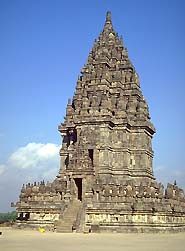Asia's First Civilizations - India And China  Introduction |
Asia's First Civilizations
You Might Also Like:

Read More
Welcome to our World History section, a vast treasure trove of historical knowledge that takes you on a captivating journey through the annals of human civilization. Our collection spans a wide spectrum of topics, providing an exhaustive resource for history enthusiasts, students, and curious minds
...
Read More
The Middle Ages
Date: 1992
During the decline of the Roman Empire, the migrations of a strong, rude people began to change the life of Europe. They were the German barbarians, or Teutonic tribes, who swept across the Rhine and the Danube into the empire. There they accepted Christianity. The union o...
Read More
The following would have been a typical day in the life of a Battle of Britain pilot
The sequences are based on the works of different authors with the exception that the names have been changed. This is just to give you an idea as to how a pilot may have spent his day at the height of the battle. ...
Read More
The American Civil War, Frederick Douglass
Edited by: Robert Guisepi
2002
A General Survey of the Slave Plantation
by Frederick Douglass
It was generally supposed that slavery in the State of Maryland existed in its mildest form, and that it was totally divested of those harsh and terrible peculiari...
Read More
Ancient Egypt, Part Two
EGYPT'S HISTORYRobert Guisepi, 2004
The Valley of the Nile
New Kingdom
The 13th Dynasty saw weak rulers—50 or 60 in 150 years. The Second Intermediate Period (14th-17th dynasties) was another time of divided rule in Egypt. The Hyksos, invaders from western Asia, entered Egypt...
Read More
A History of Ancient Greece
The Glory That Was Greece
Author: Robert A. Guisepi
Date: 2001
The Peloponnesian War
In 431 B.C. the Peloponnesian War broke out between the Spartan League
and the Athenian empire. While commercial rivalry between Athens and Sparta's
major ally Corinth was an important ...
Read More
The American Civil War: A. P. Hill
Edited by: Robert GuisepiPublished: 2002
Overview
Born: November 9, 1825, Culpeper, Virginia, U.S.Died: April 2, 1865, Petersburg, Virginia, U.S.
A. P. Hill was a Confederate general during the U.S. Civil War, renowned for his leadership of the "Light Division," co...
Read More
The American Civil War, Abolition, The Movement
Edited by: Robert Guisepi
2002
There can be no doubt that antislavery, or "abolition" as it came to be called, was the nonpareil reform. Abolition was a diverse phenomenon. At one end of its spectrum was William Lloyd Garrison, an "immediatist," who de...
Read More
The American Civil War, Abraham Lincoln
American Civil War history with slideshows, photos, music, major battles like Gettysburg as well as personalities like Lincoln, Grant, Lee and the Black Regiments
Edited by: Robert Guisepi
2002
He was an unusual man in many ways. One minute he would wrestle wi...
Read More
European Absolutism And Power Politics
Introduction
Louis XIV (1643-1715) of France is remembered best as a strong-willed monarch who reportedly once exclaimed to his fawning courtiers, "L'etat, c'est moi" (I am the state). Whether or not he really said these words, Louis has been regarded by histor...
Read More
Absolutism As A System
L'Etat, C'Est Moi
Date: 1998
Absolutism As A System
Unlimited royal authority, as advocated by Bossuet and Hobbes, was the
main characteristic of absolutism. It was demonstrated most obviously in
political organization but also served to integrate into government most
econom...
Read More
The Case Against AbsolutismAuthor: Wallbank;Taylor;Bailkey;Jewsbury;Lewis;HackettDate: 1992The Case Against AbsolutismThe Enlightenment's highest achievement was the development of a tightlyorganized philosophy, purportedly based on scientific principles andcontradicting every argument for absolute ...
Read More
Accession Of Solomon
Author: Milman, Henry Hart
Accession Of Solomon
B.C. 1017
Introduction
After many weary years of travail and fighting in the wilderness and the
land of Canaan, the Jews had at last founded their kingdom, with Jerusalem as
the capital. Saul was proclaimed the first king; afterwa
...
Read More
A History of Ancient Greece
The Glory That Was Greece
Author: Jewsbury, Lewis
Date: 1992
The Acropolis
Acropolis (Greek akros,"highest"; polis,"city"), term originally applied to any fortified natural stronghold or citadel in ancient Greece. Primarily a place of refuge, the typical acropolis was con...
Read More

Read More
Adolf Hitler, one of history’s most notorious figures, was born on April 20, 1889, in Braunau am Inn, a small town on the Austrian-German border. His life and actions would lead to global devastation and a profound shift in world history. From his humble beginnings, he rose to lead Nazi Germany, lea...
Read More
A History of Ancient Greece
Author: Robert GuisepiDate: 1998
AEGEAN CIVILIZATION
The earliest civilization in Europe appeared on the coasts and islands of the Aegean Sea. This body of water, a branch of the Mediterranean Sea, is bounded by the Greek mainland on the west, Asia Minor (now Turkey) on t...
Read More
AEMILIUS PAULUS
by Plutarch
Almost all historians agree that the Aemilii were one of the ancient and patrician houses in Rome; and those authors who affirm that king Numa was pupil to Pythagoras, tell us that the first who gave the name to his posterity was Mamercus, the son of Pythagoras, who, for
...
Read More
Africa And The Africans In The Age Of The Atlantic Slave Trade
Various Authors
Edited By: R. A. GuisepiAfrican Societies, Slavery, And The Slave TradeEuropeans in the age of the slave trade sometimes justified enslavementof Africans by pointing out that slavery already existed on that continent.Howe...
Read More